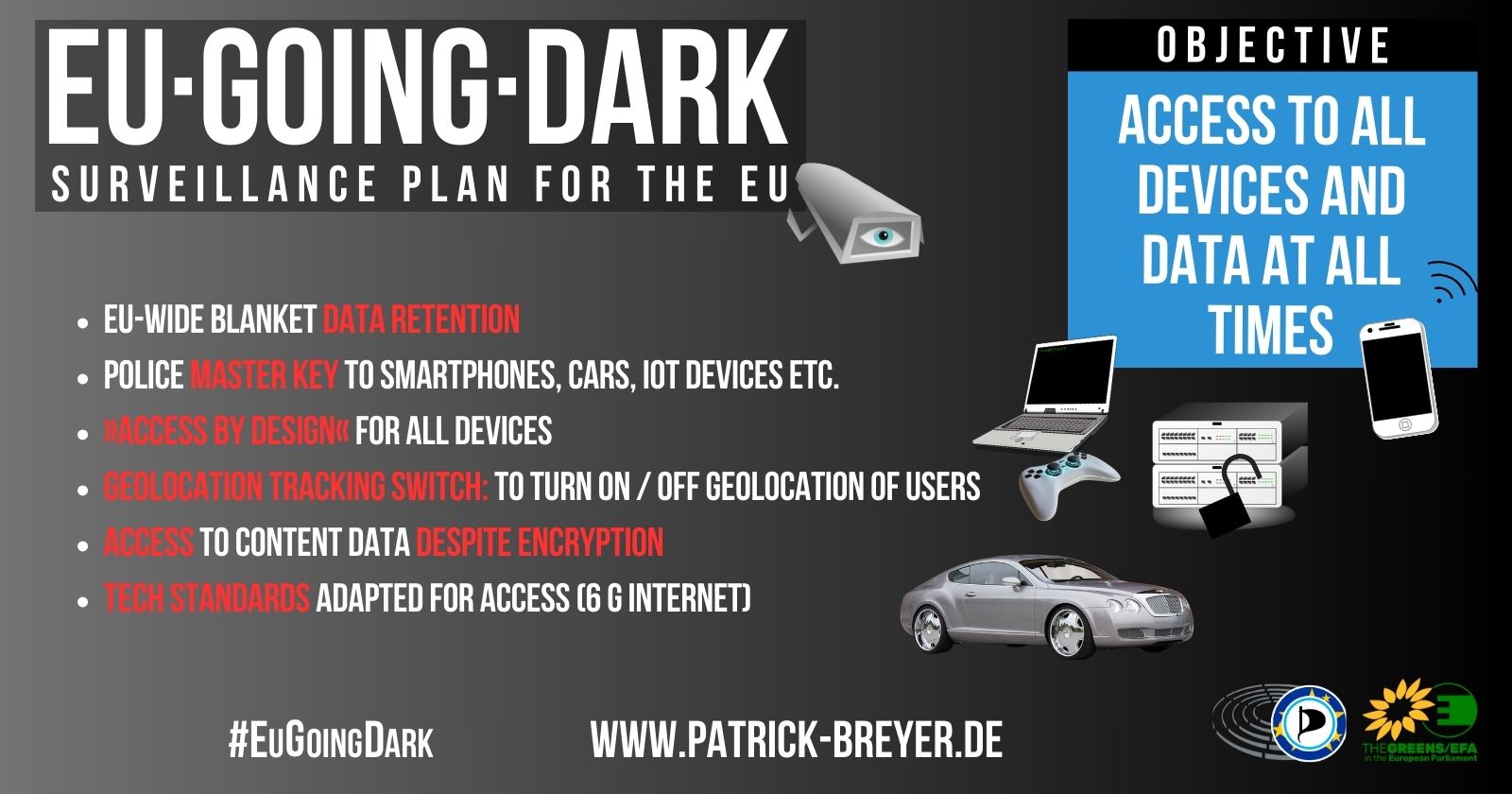European Digital Identity: EU Parliament wants decentralized data storage and right to anonymity
Tonight, the EU Parliament’s Home Affairs Committee (LIBE) will vote on amendments to the envisaged “European Digital Identity” and “digital wallet”, calling for far-reaching changes to the Commission’s proposal. Among other things, use is to remain voluntary and alternative identification without disadvantages is to remain on offer. Service providers should, as far as possible, enable the anonymous use of their services; otherwise, self-selected, changing pseudonyms could be used for signing up to Internet services. Instead of mandating a unique personal identification number or “citizen number” throughout Europe, every Member State would be able to opt for identifiers that are different for every service. The committee also calls for decentralized storage of the contents of the personal “digital wallet” (e.g., credit card data, driver’s license, medical prescriptions) exclusively on the holder’s own device, unless the holder requests external backup and data storage.
German Pirate Party MEP Patrick Breyer (Pirate Party), who had requested comprehensive changes to protect against data trafficking and identity theft, will support the compromise:
“The great risk of the envisaged ‘EU digital identity’ is that anonymity on the Internet could be eroded and the disclosure of our personal data could become the ‘norm’. Initially voluntary identification procedures could gradually become mandatory, and identification with official identification instruments could be required much more often online than offline. To protect against such a development, we call for a ban on discriminating against non-users and a right to use digital services as anonymously as possible. Being able to use pseudonyms to sign up rather than revealing the real identity also protects vulnerable groups.
I was not able to secure a majority for abolishing unique digital personal identifiers throughout Europe, but at least each EU country will have a choice. The European Digital Identity must not become a digital diary based on a lifelong identification number that can be used to record and monitor our entire digital lives!
It is a great success that the sensitive data of citizens in their ‘digital wallet’ will in the future be stored exclusively in a decentralized manner on their own device, unless they choose centralized storage. Decentralized data storage protects our data from hacks and identity theft.”
Background: The planned “European Digital Identity” is intended to give EU citizens access to public and private digital services and enable them to pay online. Under the proposal, payment data and documents such as driver’s licenses or medical prescriptions can be stored in addition to the user’s identity in the “wallet app.” It could be possible to mandate the user of biometric data such as fingerprints or iris scans to access the app. The EU service is intended to be an alternative to the login services of Facebook and Google.
After the LIBE Committee, which is exclusively responsible for the data protection rules governing the envisaged “digital identity,” the EU Parliament’s economic affairs Committee (ITRE), will take a position on the project. This will be followed by negotiations with the second legislative body, the EU Council.


